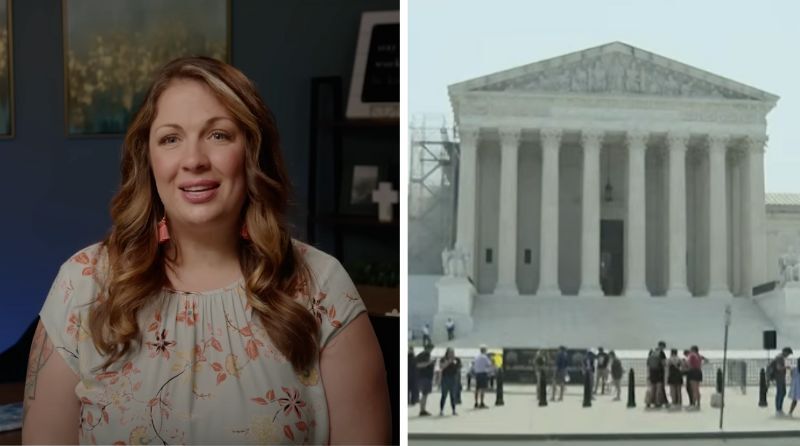
The justices, split 6-3, the designer can refuse to endorse a message she disagrees with.
The justices split 6-3 and said that the designer in the case, Lorie Smith, has a right to refuse to endorse a message that disagrees with her in creative work based on the first amendment to the Constitution.
The case, 303 Creative v. Elenis, summarizes that Smith "wants to expand her graphic design business, 303 Creative LLC, to include services for couples seeking wedding websites."
However, with Colorado's law that seeks to regulate "public accommodation," Smith worried that it would "compel her - in violation of the First Amendment - to create websites celebrating marriages she does not endorse."
The law states that any "business engaged in any sales to the public and any place offering services, facilities, privileges, advantages, or accommodations to the public" is considered to be a "public accommodation."
Smith argued that as a creative professional, she has a right to free speech in the work that she participates in. She sued the state in 2016 for the antidiscrimination law that has businesses provide services that would otherwise go against their religious beliefs.
The opinion, delivered by Justice Neil Gorsuch, siding with Smith, said Colorado "seeks to use its law to compel an individual to create speech she does not believe."
Gorsuch added, "As surely as Ms. Smith seeks to engage in protected First Amendment speech, Colorado seeks to compel speech Ms. Smith does not wish to provide."
Joining the opinion were Justices Clarence Thomas, Samuel Alito, Amy Coney Barrett, John Roberts, and Brett Kavanaugh.
Justice Sonia Sotomayor filed the dissenting opinion with Justices Elena Kagan and Ketanji Brown Jackson joining. In the dissent, Sotomayor wrote that "the Court, for the first time in its history, grants a business open to the public a constitutional right to refuse to serve members of a protected class."
The dissent called the decision of the court part of the "backlash" to the "movement for liberty and equality for gender and sexual minorities" that has been happening around the country.
Sotomayor went on to compare the decision to those who rejected steps forward in the Civil Rights movement.
Smith was represented by Alliance Defending Freedom, a conservative, Christian legal group. The group also represented Jack Phillips in the Supreme Cout case, Masterpiece Cakeshop v. Colorado Civil Rights Commission.
Powered by The Post Millennial CMS™ Comments
Join and support independent free thinkers!
We’re independent and can’t be cancelled. The establishment media is increasingly dedicated to divisive cancel culture, corporate wokeism, and political correctness, all while covering up corruption from the corridors of power. The need for fact-based journalism and thoughtful analysis has never been greater. When you support The Post Millennial, you support freedom of the press at a time when it's under direct attack. Join the ranks of independent, free thinkers by supporting us today for as little as $1.
Remind me next month
To find out what personal data we collect and how we use it, please visit our Privacy Policy









Comments